QUICK AND DIRTY DISPOSABLE DUNGEONS - PART 4: BOGDAN SZWARC TALKS ABOUT HIS D&D CAMPAIGN FROM POLAND9/12/2018 Photo: An example of what happens when game ideas and inspiration strike Today we have an interview with a gamer from Poland: Bogdan Szwarc. When we went public about the documentary we discovered that there are a lot of Table Top gamers in Poland. This has led us to making friends with several of them who we are keeping in touch with. (We have plans to visit in person and do some gaming too.) The first gamer we made friends with was Bogdan. We talked a lot about all kinds of things, but at the forefront it was always gaming. well ok, we also talked about food and beer. His current campaign is being run as a Core Rules OD&D campaign. That means that all he is using are the 3 Little Brown (Tan) Books and he doesn't even have Thieves in his game. In our own gaming we're using what we've always used, the 3 LBB's, a Greyhawk Supplement I, a 1st ed. Monster Manual, and a Judges Shield. It's pretty much the same, yet Bogdan is going even more OSR by only using the 3 little books. We were really curious about playing with so few rules, so we began an interview to find out more about running a pure OD&D campaign, and also about gamer culture in Poland. How long have you been a gamer? It's difficult to determine the exact date. And what does it mean to be a gamer? I was a rpg sympathizer since my childhood, when I saw AD&D 2ed ad in some comic book (around '94-95?) and first read about such games in a computer game magazine (maybe '96?). I didn't have access to any rpg books until later, so in my excitement I wrote my first rpg system without even playing an actual game before. It was based on German rpg The Dark Eye, I believe, since I based the mechanics on Realms of Arkania rpg series I was playing at the time (or shall I say: on the mechanics as I understood i - probably not very much). Even without actually playing any games I totally knew that it's a hobby for me. Since early '90s I was also playing the shit out of Polish Talisman edition, which I house-ruled heavy to get it more rpg-like. Not enough to be called a grognard, but in terms of portions of my life: more than 2 in 3 ! Are you strictly a RPG'er or do you also play war games? I used to play board games a lot, but now I'm strictly a rgp person. I was never into war games, however I have a stock of miniatures (still growing) which I sometimes use in my rpgs. Is there a lot of gaming happening in Poland? Since I'm a gamer and have a lot of gamers as friends and do a lot of gaming, my impression is that - yes, there is a lot of gaming in Poland. And in reality? I believe that also - yes. Few years ago rpg's were in crisis, but it looks like we have a kind of revival now, some big names going to be published in Polish (D&D5, WFRP 4, CoC 7, Witcher RPG) and more new people are getting into the hobby looking for quality fun so I'm quite optimistic about the nearest future. And I was stunned by how many people are into Adventurers League, it was a mayhem on the Pyrkon convention some time ago. Why do you choose to play the original rules without even adding thieves in to your game? I don't like the Thief concept as envisioned in early D&D, it replaces interaction with a die roll. Disabling or finding a trap (picking a lock, staying stealthy etc.) as a kind of mind game between DM and player is far more appealing than just rolling the dice. And if you discard Thief skills, there is no need to keep the Thief in. Also I don't like the wide range of attribute modifiers. +1/-1 is enough. I noticed that when I DMed Labyrinth Lord and Lamentations of the Flame Princess: if you can have a +3 modifier, players will be unhappy if they have no modifier or even a +1 one. It shifts the focus from the game as an interaction with the setting to the game as a contest in optimizing your mechanical performance. Of course - I like games which rely mostly on dice rolls. But modern games are doing it far better than the old ones. So, if I want to play the old game, I would like to keep it at it's best - minimum defined mechanics, maximum interaction and discussion between the DM and the players. If I want to roll for skill checks I'll grab D&D 5e, since it is optimized for this kind of play after decades of development. Photo: The Land of Koban How long has your OD&D game been running? This particular campaign (called Amberpeak) started December 2017 and we have 27 game sessions as for today. And still counting! We're playing on a weekly basis and there is no end planned. There are 3 active players, plus one which retired and one who took a break and will be back in October. Now their characters are 3rd-4th level, but initially there was a real meat grinder and dozens of 1st level PCs died before the current heroes emerged. Players noticed that little paragraph about multiclassing in Men & Magic, and decided to try it, so we have two F-M/M-U characters. Initially I planned a rather straightforward campaign about exploration of new and strange world with a mythological theme, but starting from game session one, thanks to player creativity and some lucky die rolls there is a kind of main story arch of evil Wizard Aristotle trying to seize control of the land (and one of the PCs being his former student). And now PCs were transformed by a powerful curse into human torch, treant (or rather something like Groot) and an undead. It gets more and more interesting. I also noticed the little fragment titled Other Character Types in vol. I so the undead player (who is both a Hero and a Medium) will now progress in the Un-Dead class, starting as a Skeleton/Zombie to eventually become a Vampire. In terms of how long I've been into OD&D - not so long. I'm a newbie, but a very dedicated one. This is my second OD&D campaign, the first one was very short. What is your world like? Is it based on something related to polish culture, or more like world wide fantasy trope culture? My previous OD&D campaign was taking place in far future dying earth style Poland, but it was mostly for cryptic satire reasons. Amberpeak has a theme of Greek mythology, with some twists however. I'm trying to use only 3LBB monsters, but give them a mythological skin, theme or twist. Where it is necessary, of course, Medusa or Minotaur are sufficiently mythological on their own. I posted a more detailed description of the setting outline some time ago, you can have a look: http://wolfgangschwarzenatter.blogspot.com/2018/06/amberpeak-campaign-setting-outline.html The creation was inspired by a Rush song, how cool is that? Since we mostly do research on old games, and particularly war games, the idea of returning to Original D&D is fascinating to us. This truly retro approach leads to fascinating play. How do you handle situations where a thief would usually take over and use Special Skills? Even if you play OD&D with supplements, there are a lot of situations not covered by the rules. And, you need to handle them somehow, right? So, my basic answer is that I handle the thief situations as any others not covered by the rules - with detailed description and some ad hoc rulings, usually some form of x in 6 roll or reaction (bell curve) roll. So, e.g. we have a chest to be opened. The players ask questions about the structure and a possible lock, I answer them making things up or rolling if I don't know (-Are there any inscriptions on the chest? -Hmmm (1 in 6 roll), yes, there is a sign in an alphabet unknown to you). And the players describe what they do, which leads to my decision what happens (supplemented by a roll sometimes). When deciding the outcomes of an action I bear in mind that we play for fun. So the more unexpected the outcome is - the more the fun. And usually it turns out that such situations are not resolved in a standard fashion: chests are not simply locked with a key, secret doors are not opened by pushing the right brick etc. Since there is no time-consuming mechanical crunch in OD&D, we have plenty of time to do a complex narrative over situations which in other games are resolved with a skill check. How do you run a situation where there is a trap that needs to be noticed and then, either understood, or disarmed? I don't usually use standard traps, like you notice that one of the floor tiles is slightly raised which then triggers a spear being shot from a hole in the wall etc. Everyone has seen dozens of such devices in crpg or tabletop games. I prefer less obvious traps including sets of buttons in need of pushing in correct order, laser-shooting statues, poisonous or corrosive gases or liquids and my personal favorites: magic curses. It usually starts in a 2 in 6 roll to spot something odd and then the narrative comes in as I described earlier. As an actual play example: the PCs entered into a room with two bronze statues with black hole-like void in place of heads. When they approached them, two stone slabs blocked their path and a graffiti in an unknown language appeared near the statues. They wandered around the dungeon some more and found an imprisoned werewolf, who they freed and learned from him that the graffiti says "A sacrifice of that what is more valuable than blood." They tried to throw different kinds of objects into the void-headed statues, to no avail. They discovered that gold thrown therein is absorbed, but did not continue to use it (I decided that it needed 50 GP of sacrifice to lift the slabs). Instead they took their picks and other mining equipment and spent 3 days gouging their way through the slabs. Did they need a Thief for that? Absolutely not! Even a trapped chest seems like it needs a thief to deal with it. You're right: it seems. ;) But when there is no skill check to disarm and open such chest, there is plenty of room for a real adventure, it is more interesting than roll for disarm, yeah, you opened it, good for you. We really love home made, or home brew games of any kind; what is gamer culture like in poland in regard to using rules and adapting them to your own creation, or world setting, as opposed to merely buying pre-fab modules? Wow, that's a tough one and a good topic to have a long discussion. RPGs in Poland got popular in the 90s and due to some publishing decisions and coincidences WFRP became the most popular system, while D&D was disregarded until early 00s when 3.0 became wildly popular. WFRP (1st and 2nd editions, the ones popular in Poland) is a very flawed game. At the same time - it became a default game, most widespread among Polish RPG fans. And it was (and unfortunately still is) converted, hacked and house-ruled with absolutely no rhyme or reason; people played everything using WFRP ruleset. There is a joke (it's funny because it's true) that when someone is asking for an opinion on some system on the internet, the first comment will be "why use X rules, if you can take Warhammer?" As a backlash: there is a justified "no-houserule, system matters" movement prominent in the fandom. On the other hand - there is another extreme of, let's call them: The Keepers of the Deep Lore, who run around the place and yell that you are not playing the real game if the banner of the City of Thousand Spires has a griffon with three claws instead of five like it says in Splatbook #347. They are particularly pitiful, since they usually oppose making our hobby more inclusive. Probably I'm over simplifying here, it needs a thorough discussion. Luckily, as we are catching up with the rest of the world (in large thanks to the indie movement), homebrews are getting their respectful place among the fans. However - as with all geek-culture markets the majority of the audience wants to have splat books and ready to go modules/adventures which leave little to no space for your own creation. That's the case with D&D5e unfortunately that's why I have mixed thoughts on that system, it discourages players to create their own worlds. And for me - that's what RPG is about, I'm all about DIY approach. Photo: The player's map of the first level of Kepoi dungeon Since you've been running a very core rules OD&D game, we are also interested in how your players are experiencing these games. You definitely need a special kind of players to do a core OD&D game. They need to know what to expect and accept the outcomes. In my previous OD&D campaign I tried to run the game for nearly everyone who wanted to join in. And it was a disaster. Modern players are not familiar with the concept of taking the plot into their own hands with no mechanical support and are spoiled by the challenge rating system (if there is a monster, they assume that it needs to be slain right here right now, in a chivalrous duel with no dirty out-of-mechanics tricks). My current players came to me after my lecture ar a convention in my hometown and they definitely knew what they wanted. They take the game idea for granted and try to make the most fun of it. The setting is equally created by my imagination and their actions. Do your players seem more engaged with the make believe in your OD&D, and also, is OD&D as deadly as we keep telling people it is? Yes, they definitely are. I think it's a kind of an epiphany - suddenly you understand what it's all about and start to mold the game world. My players are not re-active, they are absolutely positively active ones. They are the Fred Funk kind of players, that should be understandable. ;) I believe that they became more like this thanks to OD&D served straight. And yes - OD&D is as deadly as you keep telling people. And even more. It's difficult to imagine if you don't try it yourself. I don't keep a detailed body count, but I think that something like 20 characters have died in this campaign. In the previous one we had two or three TPKs over a very short period. In Amberpeak players hold a contest of the most stupid death. Current no. 1 is a first level Cleric with 1 HP, who died bitten by underground mosquitoes. You can't have a non-deadly game if the characters have 1-6 HP and each blow deals 1-6 damage. Not to mention poisons, death-rays and level drain. It does improve however, when the PCs reach level 3 and up. And it depends heavily on retainer availability. If you have a dozen or two of mercenaries acting as human shields it definitely improves the odds of survival. Does it force your players to be more inventive? Definitely yes. They are collecting all things they encounter in hope of utilizing it one day. They devise new kinds of equipment, flamethrowers, smoke bombs, inventive ways of providing light, and much more. Magic-Users make every possible use of the few spells they have. They arrive at each game session with brand new ideas. Some of the ideas are stupid, but if they're fun - I always try to give them a go. How are your players using such a basic system to improve their odds in encounters? It is the other way round - the system is so basic that it does not limit the players in any way. They need not to think in terms of game mechanics. They can think of literally ANYTHING which may improve their odds. It's thinking outside the box at the most basic level - there is even no box. Of course - it needs cooperation on the referee's side. It usually looks something like this: How about doing X? Well, looks interesting, but I see a possible issue with the Y aspect. Oh, you're right. Maybe doing it in the Z way will help? Yeah, that looks reasonable. If you roll 1 in 12 it fails, otherwise it works. And they try literally everything, limited only by the time of game session. Like developing alternative revenue sources such as holding fighting tournaments, or employing charmed humanoids as artisans and clerks. Photo: Kepoi dungeon, level 4 How much pre-planning have you done for your game? Most of my games start from a single inspiration. In the case of my current game I was driving home from work and listening to Hemispheres by Rush. Suddenly I had an idea powered by the record and the image of broken in half moon from Thundarr TV series: an ancient Greece themed world which is divided in two eponymous hemispheres - one inhabited by mortals and the other by gods. Then (as usual) I spent few weeks in a frenzy making notes, reading source material and fleshing out the details of the setting: names, monsters, general outline of the location of the game. Then I launched Hexographer, drew a map, rolled for some additional locations, placed the points of light, rolled some story cubes for rumors, prepared some basic encounter tables, printed some basic dungeon maps and hey presto! We can start the game. Is that a lot of pre-planning? In terms of working hours spent on the setting - quite a lot. But it all was just setting the canvas for a painting to be painted during the gameplay. In terms of preparing the plot - none of this happened. I had no idea what would happen during the campaign. My previous setting was inspired by a single joke that one very popular Polish preacher would be an Evil High Priest in D&D. And it spawned the same kind of reaction. What have you used for the country and dungeon maps? As to the Wilderness - my imagination, a pen and a piece of paper. Then Hexographer. And then some random rolling for features like ruins, tombs, etc. When it comes to the dungeons - I had little time before the start, so I printed some random maps found online. It was a good idea, since on the first game session the players decided to delve into a dungeon. All other dungeon maps were prepared from scratch. I doodled them in my spare time and designed a vertical structure of the mega-dungeon (there are a dozen or so of levels and sub-levels). In our research on Blackmoor, it really reveals how Blackmoor was operating on a many levels, unlike many other Fantasy campaigns we know of. Players build armies and the Egg of Coot is always scheming to invade Blackmoor town. Do you see your own campaign expanding into that level of a game, or are your players happy with the Dungeon Adventure type of game? Players are not building armies (at least not yet, but the one PC who became an undead is scheming to build a massive army by means of level drain when he reaches the rank of Wight, but Aristotle the Great Wizard is definitely scheming to invade the colony of Derbent, not to mention his numerous minions who have their own agendas. Additionally, players who have some personal feuds with the Wizard are scheming to foil his schemes. Of course there are the Forest People and their Ancient masters, and the Witch from the Mangrove Forest with her hundreds of charmed slaves. And what about space and time travelers from the City of the Thousand Spires, subject to the White Spider Queen of the Black Spider King? And what about the mysterious city of Naissus ruled by the Invincible Overlord -- sounds familiar, doesn’t it? So, definitely yes, I see that my game is expanding to the Arnesonian level. PCs are relatively low-level (the strongest one is a Hero), but as their power progresses there will be more and more involvement in the grand scheme of things and political agency. I really love it, and of course that will not mean that they’ll abandon the dungeons; they need to have a steady flow of cash after all, and it’s still pretty far to have a barony of their own. And as an addition to the last question: have you made use of the air combat rules, or the sea combat rules in your game yet? Not yet. There was only one maritime encounter so far: a Giant Octopus has eaten alive one of the PCs. And no aerial fight as for now. To be honest, I’m not a particular fan of the sea and aerial combat rules in OD&D. They seem to be out of place: gratuitous splash of simulationism in a generally simple and abstract game, artifacts of a wargaming legacy. Every dungeon master has their own tricks, do you have any short cuts, or secret rules that you have in your games? My main trick is: Fake It Till You Make It! Players should never feel that there is a halt in the game because you are downloading new data or rendering the environment because they trespassed your expected area of play. Take the first thing from the top of your head, insert it in the game and think about reasoning behind it later. If you have a clear view of the basic themes of the setting that should not be very difficult. And a more specific trick: after few game sessions I make a list of adventure hooks, plot points etc. which appeared in the game so far. And then, when I don’t have any idea how to introduce an encounter or explain it: I roll to determine randomly what past event it is tied to. It allows for a sense of consistency and enhances the feel of a living world. And another one: after each game session I sit and try to determine what will be the world’s reaction to what just happened. Alliances are formed, wars waged, and seeds of future events sown. I very much enjoy all the behind the scenes mini-games. I usually try to determine the outcomes with a reaction-like roll, so that I’m equally as surprised as the players are. Thank you for letting us know more about games and gamers in your country. You will have to keep us posted on gaming in Poland. Maybe you can do a report on your big gaming and comics convention next year. It sounds very interesting. Thank you for giving me an opportunity to talk about it! I’m just a humble gamer and a big fan of your project. Sure, I’ll be more than happy to share a report from Pyrkon - the biggest convention in Poland, but as you mentioned - that will happen next year. This year we’ll have a con in my hometown called Copernicon. Much smaller one, but also much more focused on RPGs. And together with Marcin who you also know we’re holding the first Polish dungeon exploration tournament. It’ll be a lot of fun. The event starts Friday, September 14th. Thank you for your time and really looking forward to see the film! We hope you enjoyed this interview. We're planning on contacting other gamers around the world to discuss old school play in future articles.
Just to review what Bogdan talked about a tiny bit. How do you feel about this style of Zero Rules gaming? We've been using thieves in our games, but this is making us think we should go even more basic for a couple of sessions, just to see how it works. The idea of not being able to die roll your way past things in a dungeon is fascinating, and very much how we think Gary and Dave played in the early days. Would you be willing to have a game where every situation requires true interaction?
2 Comments
Paul
4/16/2020 05:42:16 pm
Excellent interview. Bogdan definitely lives the 0 edition dream! I run a campaign using Matt Finch’s Swords and Wizardry White Box rules, which are designed to very closely emulate the three booklets.
Reply
Leave a Reply. |
DVD'S, Books, T-shirts, games and more available on our store.
AuthorSecrets of Blackmoor is a Feature-length documentary about the birth of the “Mother of all Games;” Dungeons & Dragons. Archives
January 2024
Categories |
Privacy Policy
All Contents Copyright © 2023 The Fellowship of the Thing, Ltd. - All Rights Reserved
All Contents Copyright © 2023 The Fellowship of the Thing, Ltd. - All Rights Reserved

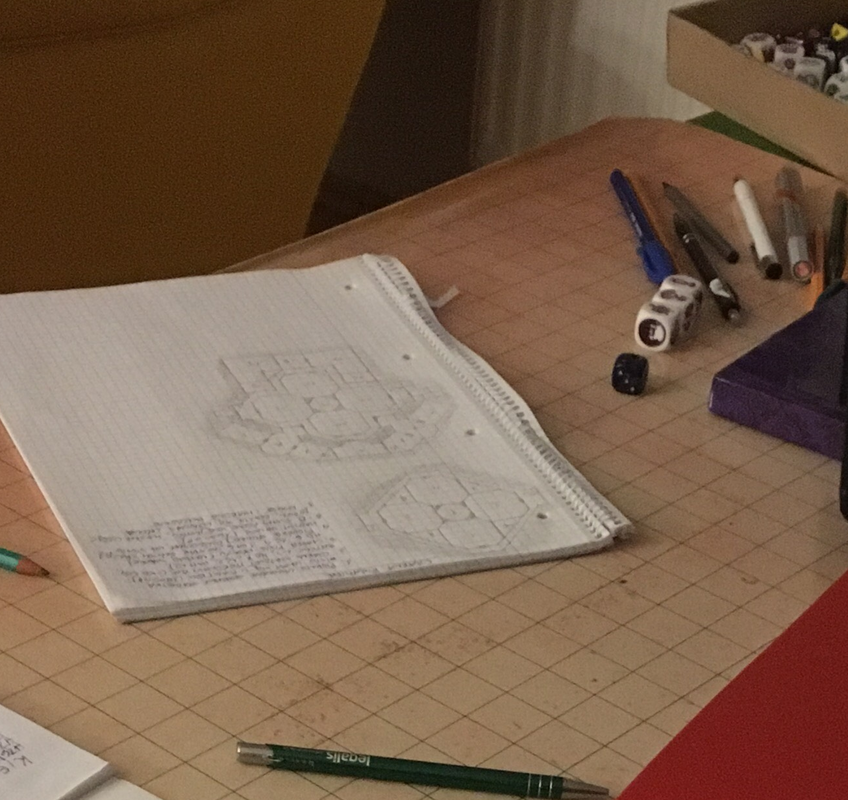
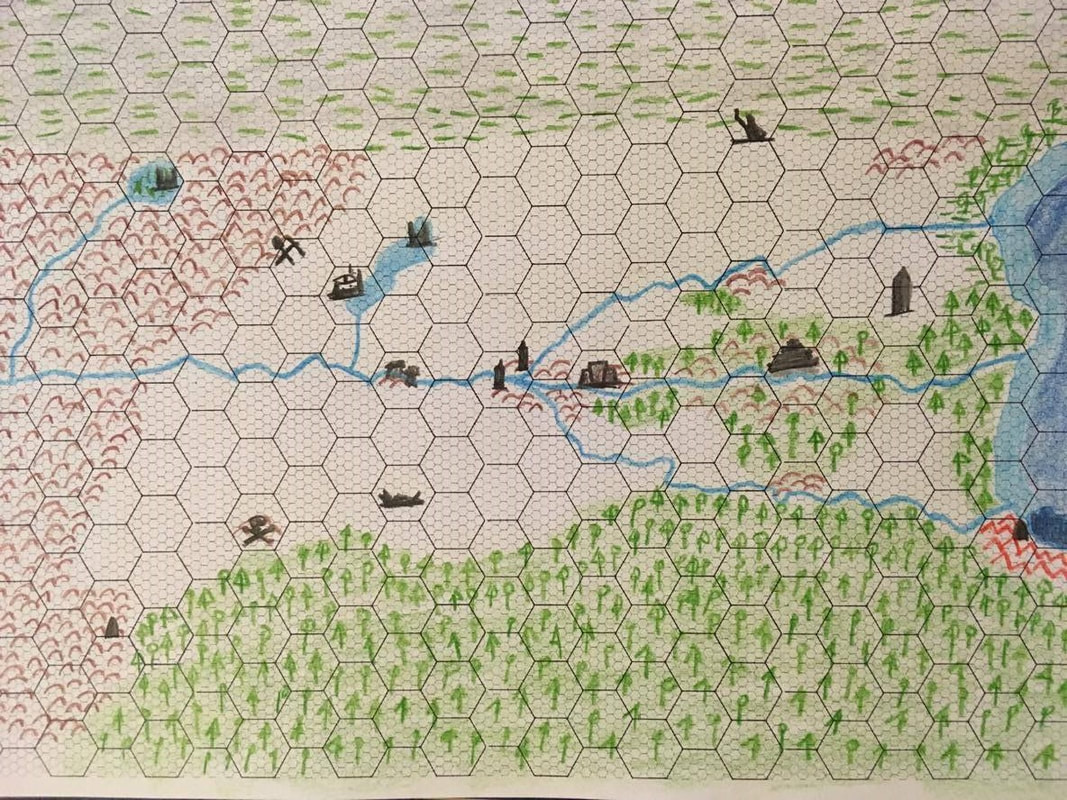
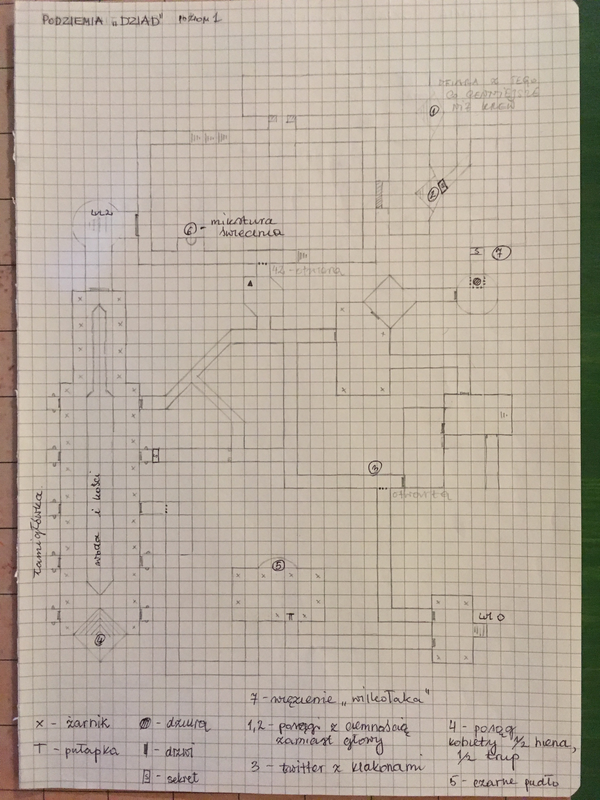
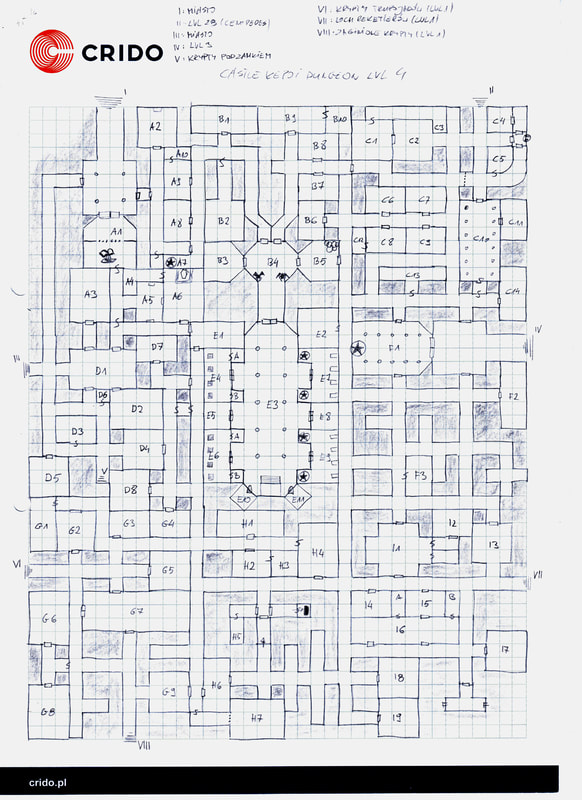
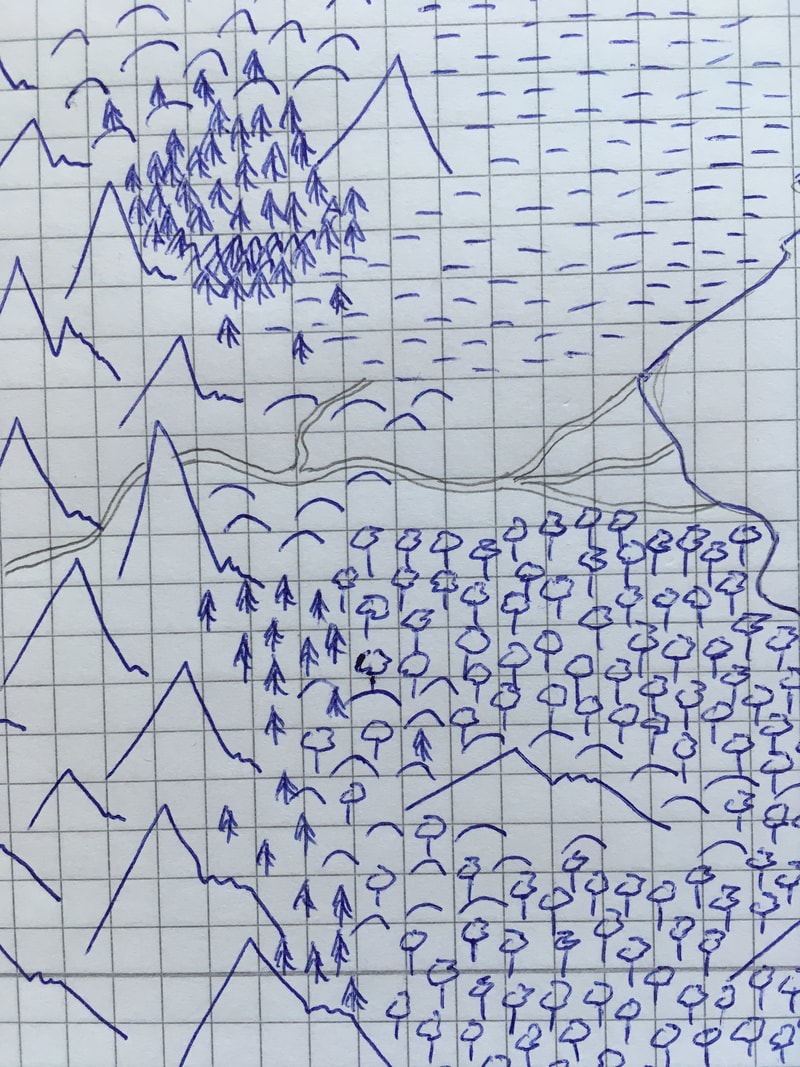
 RSS Feed
RSS Feed